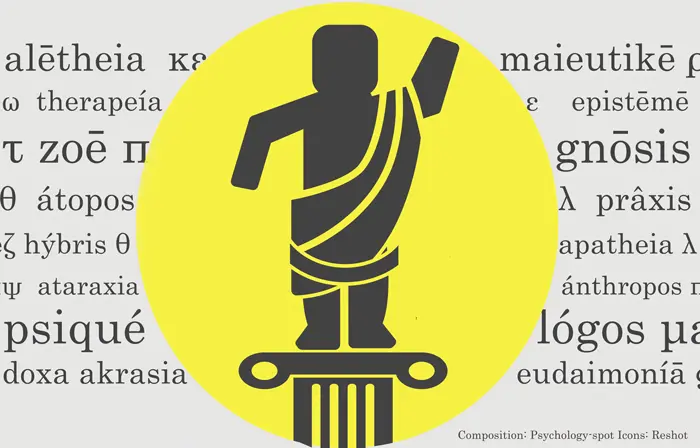
Sooner or later adversity will knock at our door. We cannot escape from its knocking, but we can prepare ourselves to face it, we can strengthen the “muscle of resilience”, so that the problems of life do not become a psychological trauma that will break us into a thousand pieces.
Seneca, the highest representative of Stoicism, a philosopher that advocated the mastery of the facts and emotions that disturb our lives by getting rid of unnecessary material attachments, saw adversity as something positive. He said that “there is no one less fortunate than the man who forgets adversity, because he has no chance to put himself to the test”.
The key, according to this philosopher, was to prepare us for the worst in the best way. A priori, his ideas may seem pessimistic, especially in the “era of positivity” at all costs, but a dose of foresight mixed with realism does not hurt.
In fact, Hegel affirmed that negativity maintains existence full of life and saves us from what the contemporary philosopher Byung-Chul Han called “the fatigue of the self that leads to a heart attack of the soul”. The negativity to which these philosophers refer is not the pessimism that paralyzes us but a driving force that empowers us as it encourages to make decisions.
Unexpected adversity hits hard
“The effects of what is not expected are more overwhelming because the weight of disaster adds to the unexpected. The unforeseen has always intensified a person’s pain. For that reason we must make sure that nothing takes us by surprise. We should project our thoughts towards the future in every moment to take into account every possible eventuality, instead of thinking that events will simply follow their course.
“We must anticipate all possibilities and strengthen the spirit to deal with the things that could happen. Test them in your mind […] If we do not want to feel overwhelmed and dazed by rare events, as if they were unprecedented events, we must rethink the concept of luck in a more exhaustive way”.
Science has proven Seneca’s proposal. A study developed at the University of California revealed that to achieve our goals, visualizing the results and imagining that everything will turn out well is not the best way. On the contrary, those who really achieved their goals were the people who visualized the way and prepared for the setbacks that could occur. Even that process of preparation helped them reduce anxiety and anguish.
Another more recent experiment conducted at the University of New York revealed that fantasizing about the positive results we could achieve in the future becomes a double-edged sword. These psychologists discovered that the people who fantasized the most had worse long-term results in life because they took fewer responsabilities in the matter.
That does not mean that we should be pessimistic, but that we need a dose of realism that keeps us grounded and allows us to anticipate the problems. Because “Those who are not prepared, will feel terrified by the most insignificant events”, warned Seneca
How to prepare for the worst?
Often reality overcomes fantasy. Sometimes life hits us harder than we expected. It’s true. We can not always foresee our emotional reactions and how hard the impact will be. However, Seneca was convinced that “the person who has anticipated the arrival of these problems takes away their power when they arrive.”
He advised: “It is in times of security that the spirit must prepare to face difficult times. Take advantage of the fact that fortune gives you favors, to strengthen yourself against its rejections […] Reserve from time to time a few days during which you will be content with the simplest food and the roughest clothes. Then you will ask yourself: ‘Is this what I should fear?’
“Barley porridge, or a crust of bread and water are not a very appetizing diet, but nothing gives us more pleasure than the ability to enjoy even that, and the feeling of having achieved something that no one can take away from us, not even any unfair stroke of fortune”.
His words leave us a fundamental teaching: we must embrace the essential, and be happy with it. When we are able to separate the grain from straw, when we realize that the important and essential things in life are really few, many bad luck blows stop being negative because they take away from us only the superfluous things, which we can live without.
And when the adversity comes?
His advice is as simple as valuable: “In adversity it is often necessary to take a daring path”. Instead of being overwhelmed by the blow, we need to react. Then it’s time to risk, try other ways and change.
Sources:
Séneca, L. A. (2018) Cartas a Lucilio. Epístolas escogidas. Barcelona: Editorial Ariel. Oettingen, G. & Mayer, D. (2002) The motivating function of thinking about the future: expectations versus fantasies. J Pers Soc Psychol; 83(5): 1198-1212.
Pham, L. B. & Taylor, S. E. (1999) From Thought to Action: Effects of Process-Versus Outcome-Based Mental Simulations on Performance. Personality and Social Psychology Bulletin; 25(2): 250-260.



